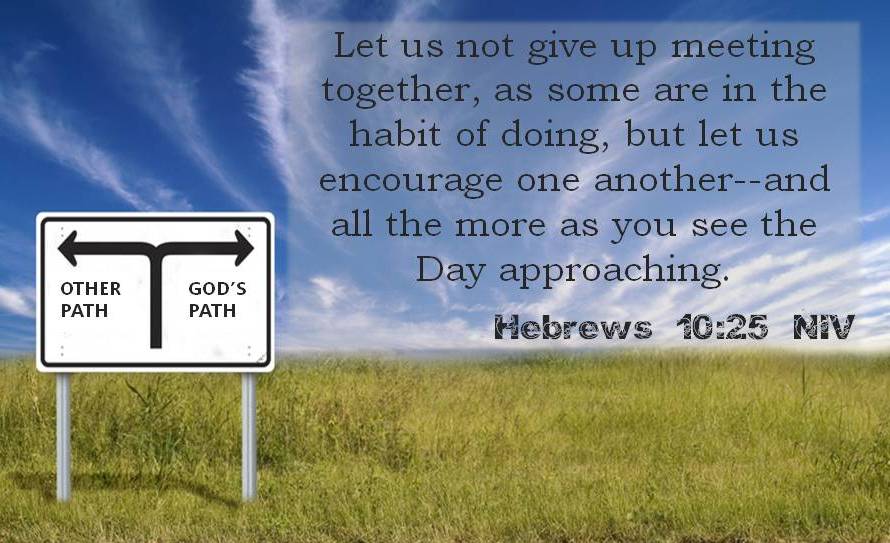Home | About Us | Directions | Bulletins | Sermons & Audio | Cross Of Christ Studies | Classes | Student and Parent Resource Page | Dangers Facing the "Non-Traditional"
The Big IF
by David Diestelkamp
So it was, when the days of feasting had run their course, that Job would send and sanctify them, and he would rise early in the morning and offer burnt offerings according to the number of them all. For Job said, "It may be that my sons have sinned and cursed God in their hearts." Thus Job did regularly. - Job 1:5
Job craved righteousness for his family so much that he regularly got up early and sacrificed for each of them just in case they had sinned. If they had, Job wanted them forgiven. If they had cursed God, Job sought His mercy. If their hearts weren’t right, Job wanted to atone for it. These are a lot of ifs. Job thought about God like the Psalmist: “For You, Lord, are good, and ready to forgive, and abundant in mercy to all those who call upon You” (Psa. 86:5). So in faith we pray and sing,
If I have wounded any soul today,
If I have caused one foot to go astray,
If I have walked in my own willful way,
Dear Lord, forgive!
(Charles H. Gabriel, An Evening Prayer)I’m wondering if we show the character of God in forgiving others—especially in the area of ifs. What do we do when someone says to us, “If what I did was a sin against you, I apologize.” “If I offended you, I’m sorry.” “If I showed hate in my heart toward you, forgive me”? The response often is, “IF!? Do you realize what you did? Do you see how much pain and suffering you produced!? How can you say, ‘If’? There’s no IF about it!”
Ephesians 4:31-32 has a lot to say about forgiveness: “Let all bitterness, wrath, anger, clamor, and evil speaking be put away from you, with all malice. And be kind to one another, tenderhearted, forgiving one another, even as God in Christ forgave you.” Sometimes it is hard to forgive because bitterness, wrath, anger, and malice are being savored in our hearts because we feel the offender deserves punishment rather than mercy. Clamor (fighting) and evil speaking (slander) are how the world naturally responds when people do terrible things, but we are not of the world. We are to respond in a radically different way.
“…forgiving one another, even as God in Christ forgave you” (Eph. 4:32). We do our best in our service to our Lord, but we still aren’t perfect —imperfect faith, imperfect obedience, imperfect repentance, imperfect confession. We are drawn to God’s perfection, but we still have to join David in pleading to God, “Who can understand his errors? Cleanse me from secret faults. Keep back Your servant also from presumptuous sins…” (Psa. 19:12-13). Do we forgive others in the same way we ask God to forgive us? Does the apology have to be worded precisely as we think it should be? Must it be the first and the last time to merit our forgiveness? (Matt. 18:21-22) Can there be no ifs involved?
Jesus asked if we only love those who love us, only do good to those who do good to us, and only lend to those who can repay us, how are we any different from the world? (Lk. 6:32-34) Following Christ makes us radically different, and that includes forgiving as He forgives. Is how we forgive any different from how the world forgives? Are people amazed when they see how we forgive, get past relationship problems, and maintain fellowship and unity? God’s grace is amazing! His children’s grace should be amazing too!
Other Articles
How Long is the Line?
The Door of Hope
Steadfastness
The Goal of Longsuffering
Has This Ever Happened to You?









